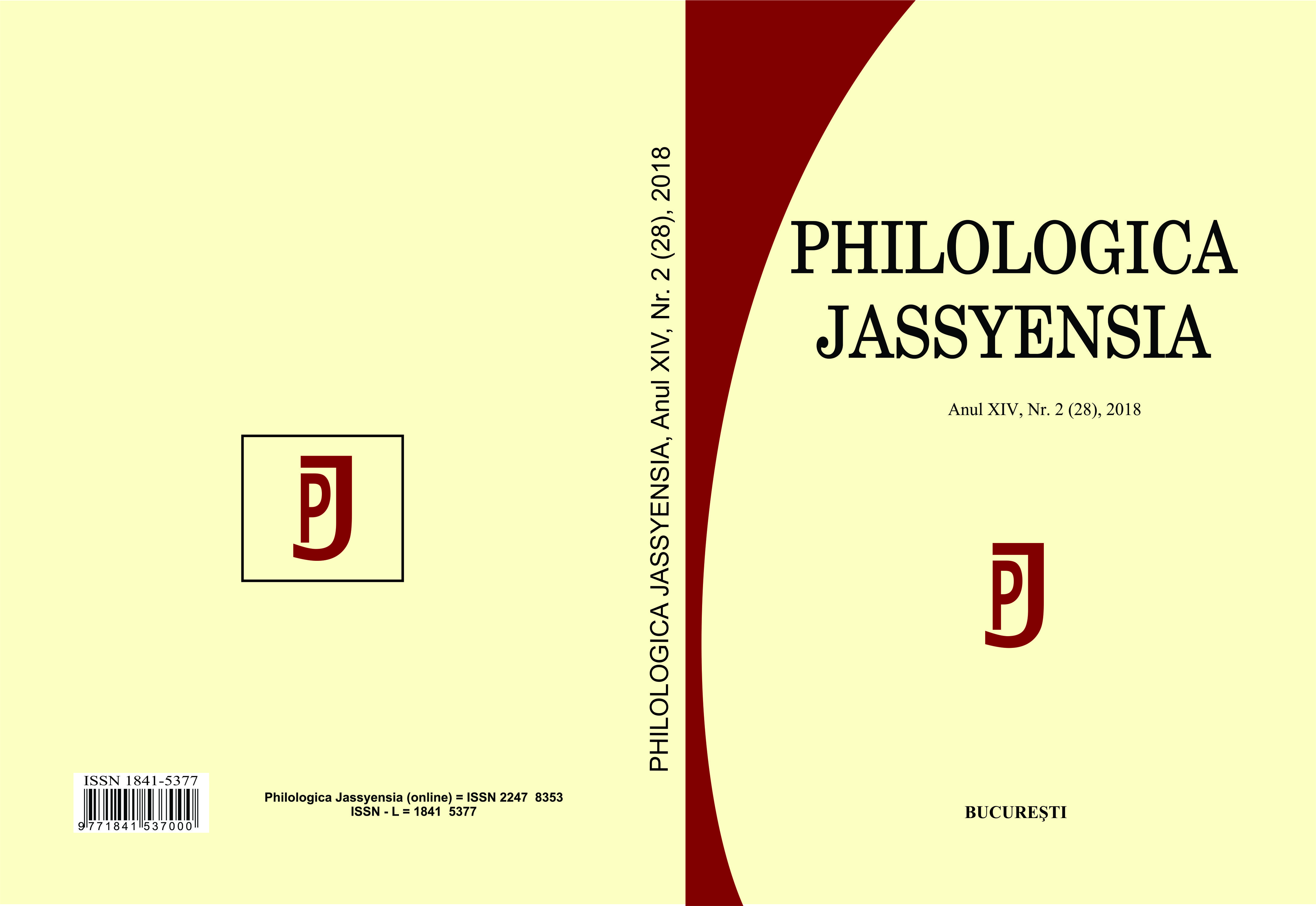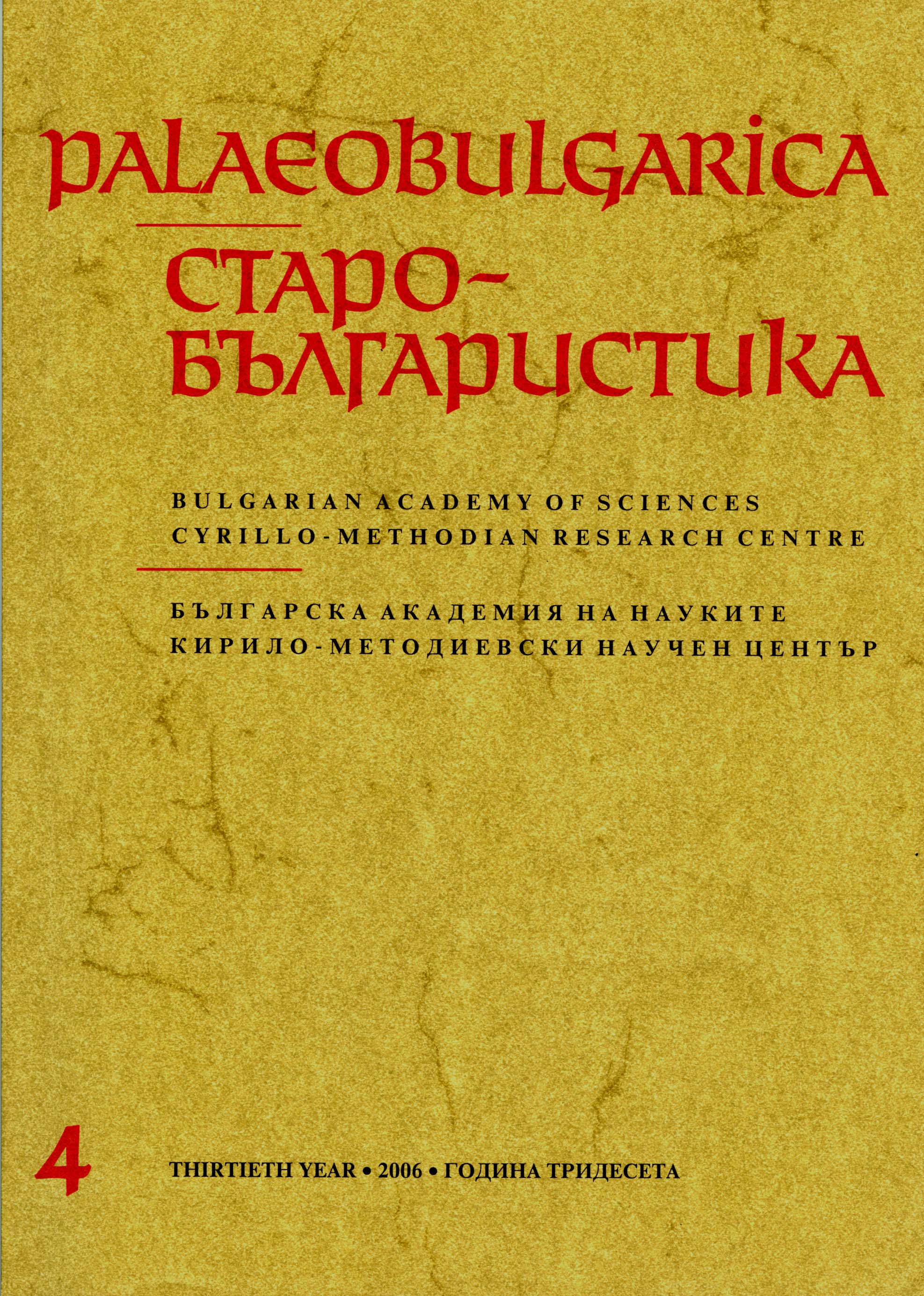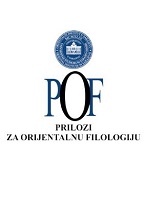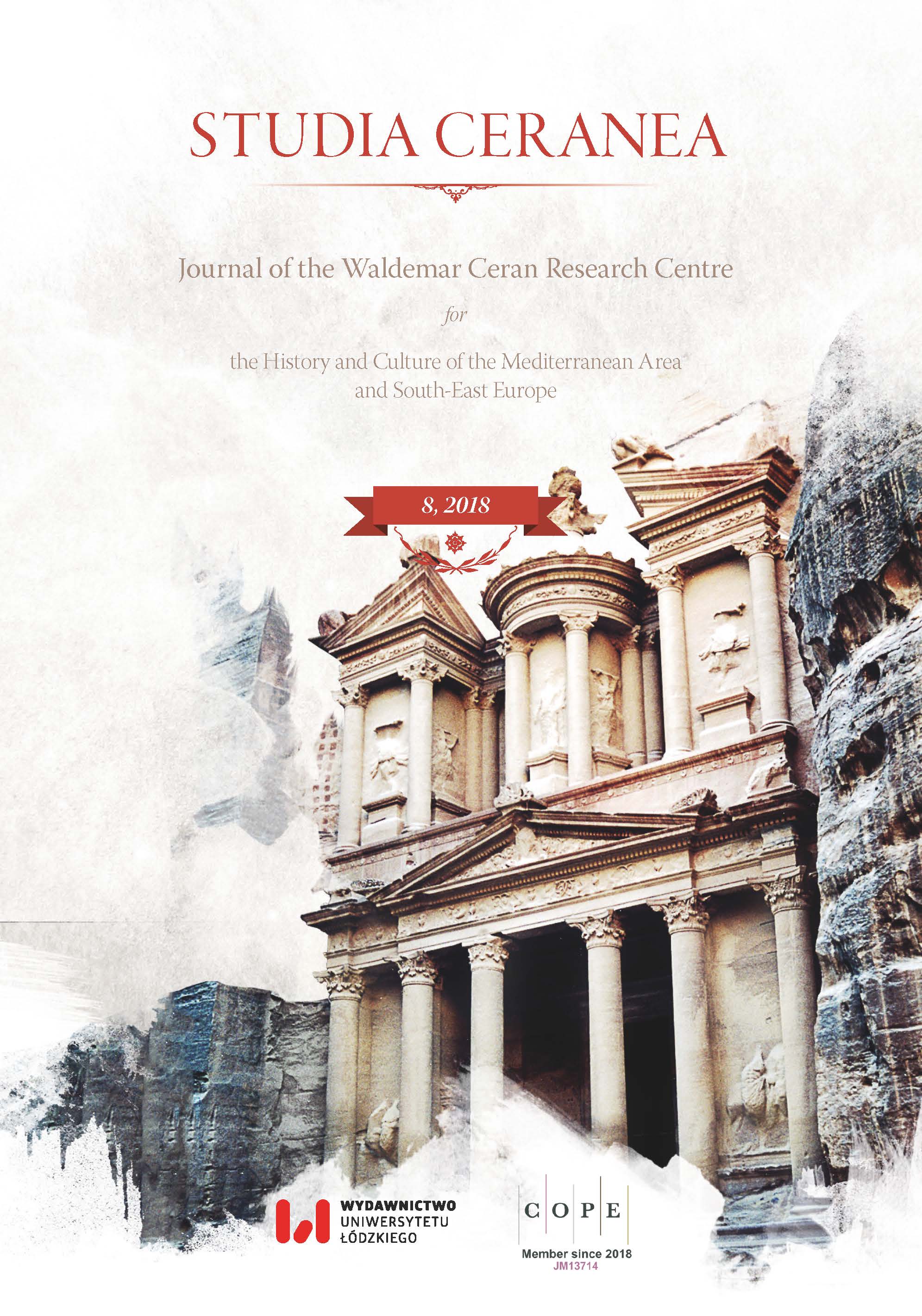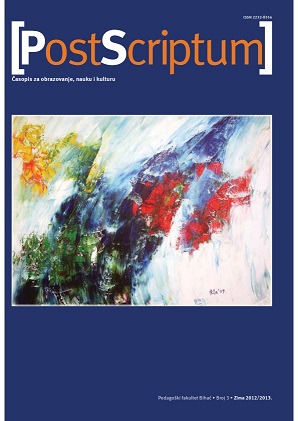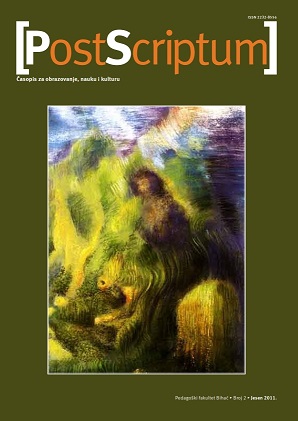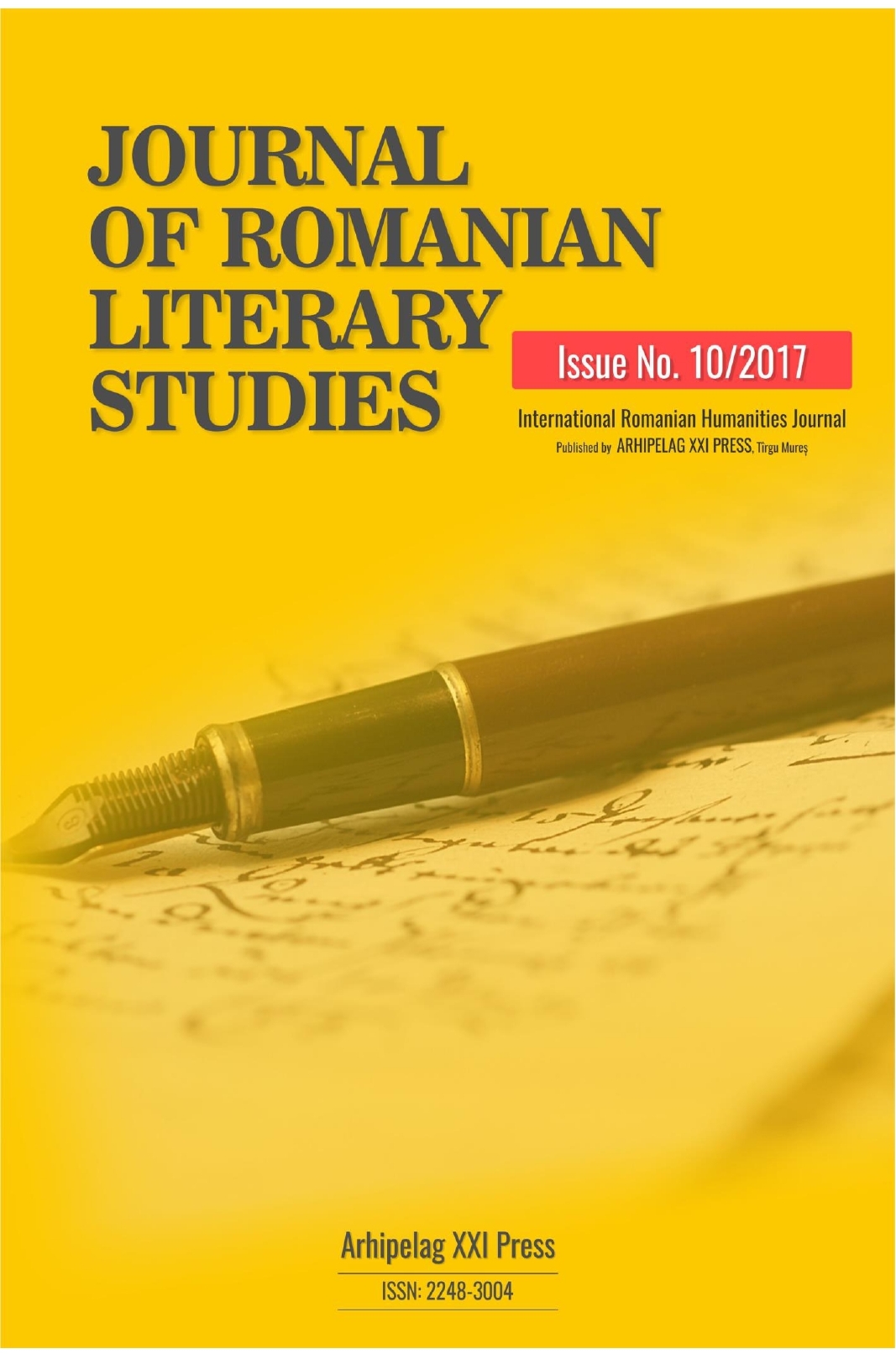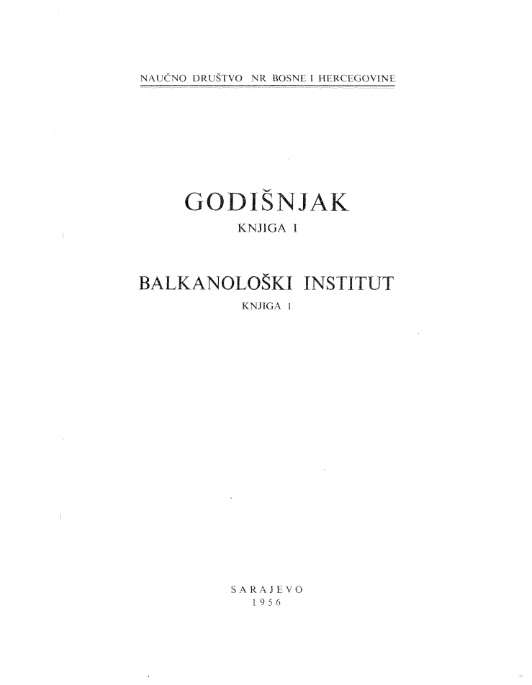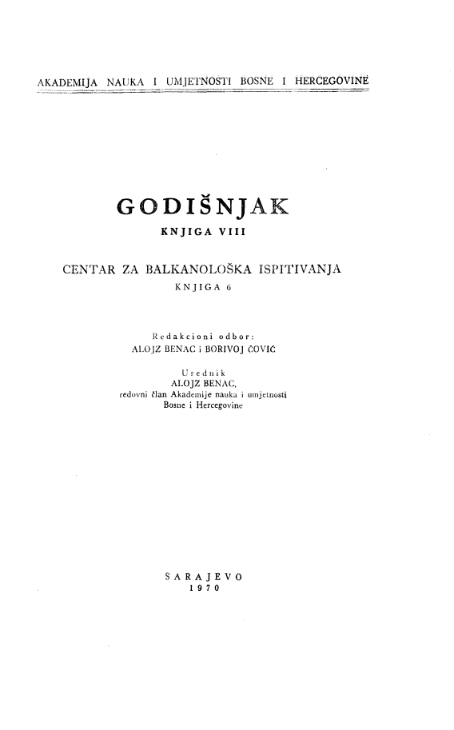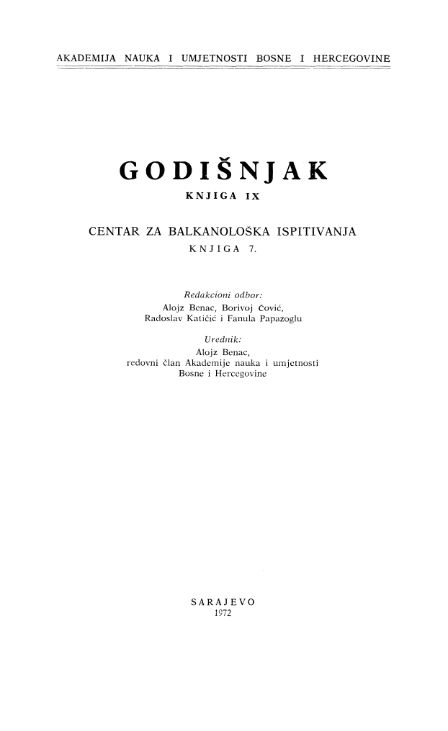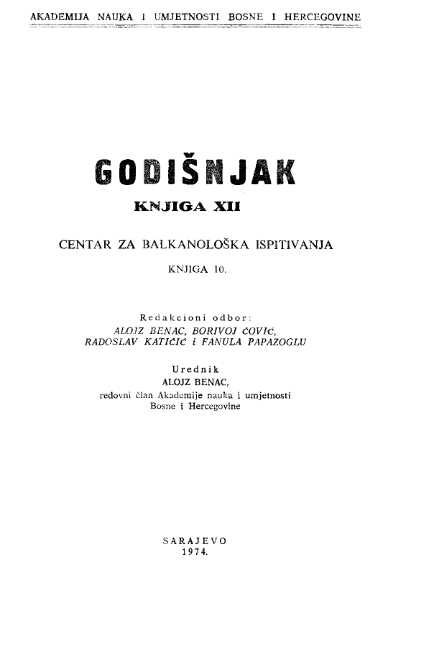Author(s): Rade Uhlik / Language(s): Bosnian
Issue: 12/1974
La langue des Romanis possède un vocabulaire pauvre, mais sa morphologie est assez bien conservée. Cette langue est en fait un complexe des dialectes hétérogènes. Les formes originales résistent toujours à la pénétration de l’influence étrangère. Les Romanis emploient l'impératif plus souvent que les autres peuples. C'est un peuple émotif, tempérant. L’imploi des formes de l’impératif est limité, mais ces formes sont tellement fraîches qu'elles peuvent freiner une abondance incontrôlée. Les formes primaires de l'impératif apparaissent seulement au présent. Il n'y a que les personnes présentes et le temps qui coule qui peuvent garantir que la demande sera accomplie. L’impératif n’a que la, deuxième personne du singulier et du pluriel. Il emprunte les autres formes aux autres modes. La deuxième personne du singulier qui est la plus courte, représente la base pure. Par ex.: Suv (couds!), užar! (pele!) etc. Mais, ily a peu d’exemples qui se terminent par une voyelle. Dar ex.: Kate (fisse), xuti (saute!) etc. L’impératif peut être décrit par le subjonctif. Par ex.: Na pusav! (ne pique pas!), Na te pusav eh! (que tu ne piques pas!) — La troisième personne du singulier est absente et nous ne pouvons pas lui ordonner rigoureusement. Pour cette raison nous employons des moyens descriptifs et mettons la particule exhortative muk ou mek devant le verbe. Il y a des phénomènes semblables aussi dans les autres langues. On peut employer la conjonction te au lieu de la particule muk. Par ex.: Te na bešel vov an kovli čik! (Qu’il ne s’assied pas dans la boue molle!). On peut employer parfois la deuxième personne du singulier au lieu de la troisième personne. Par ex.: Me čaladem leh, a vov, n’av dilo, irisardah mae. (Je l’avais frappé, mais lui, n’étant pas paresseux, m'avait rendu la pareille). — La première personne du pluriel de l’impératif est décrite par le subjonctif. Par ex.: Te dia,h! (Que nous allions!), Te čhudah e diukhlenâe kokala te čoplin! (Que nous jetions des os aux chiens pour qu'ils les rongent). — On forme la deuxième personne du pluriel de l’impératif en mettant la conjonction te devant la deuxième personne du pluriel de l’indicatif. Par ex.: Box te dožaćaren! (Que la fortune vous arrive!). La troisième personne du pluriel est la même que la deuxième» mais seulement elle a son pronom von. Par ex.: Te von kjpin e pira andò vrdon! (Qu’ils amassent les vaisselles dans le char!). Te na bešen von gothe kaj hi but diukhlane greaja! (Qu’ils ne s'asseyent pas là-bas où il y a beaucoup de tiques de chien!). L’optatif. Chez les Gourbets existe une formule unique de salutation pour chaque occasion, lors d’une rencontre et à l'arrivée. Sar, ma, cere? Traduction littérale du raumain: Ce, mai, faci? (Que fais tu, hé). Le mot sar (comment) a ici la valeur du pronom so (quoi). Ma (maj) est une particule vocative. On dit au départ Aci devleha! (Reste adieu! ou reste avec le Dieu!). La réponse en est: Dia đevleha! (Va adieu!). Mais chez les Tziganes valaques et beaucoup de Gourbets existent encore deux formules paires. La première en est: Maj, mištoro! traduction littérale: Hé, bien! C’est le reste elliptique d’une formule paire à l'optatif où le verbe est depuis longtemps omis. Le mot misto fo est le diminutif de mišto (bon, bien). On répond à ce salut avec: Maj, najis! du nouveau grec Na ijisL Litt.: Salut! Porte-toi bien! La signification optative est: Sois sain! La langue des romanis possède trois modes. L'infinitif est un mode indéfini, tandis que l’impératif et le subjonctif sont plus précis. L’infinitiv est disparu chez nos Romanis, il existe seulement chez les Romanis de Lika et chez les Suites. Exemple pour l’impératif: Gale s anjore sujvofaha pusav e phubale blindice! (Avec cette petite aiguille perce ces petites pustules!). — Quand on met devant la forme de l'indicatif la conjonction te, on obtient la forme du subjonctif. Te aveh sasto! (sois sain!). C’est en même temps l’expression pour: merci! La même chose se produit avec l’expression: na ijîs! — Na bandivi (Ne te penche pas!). C’est l'impératif. Na te banâoh! (Que tu ne te penches pas!). C’est le subjonctif. On emploie ces deux phrases équivalentes alternativement. L'expression synthétique xoljardiv! (fâche-toi!) convient parfaitement à l’expression analythique xoljar tu! Ma t'aveh -tari (Ne viens pas!). La postposition -tar désigne régulièrement l’éloignement, tandis qu’ici elle marque le rapprochement. Na te vraknosa.jvoh! (Ne t’enroue pas!). Na vraknisajvo! C’est la phrase imperative parallèle a la phrase subjonctive précédente. Te phiradivah cjra! (Que nous nous promenions un peu!). C'est une ellipse, parce que la phrase principale n’est pas exprimée. Av te mudaram e šošojeh! (Viens tuer ensemble le lièvre!). Dans le mot mudaram le -m final remplace le -h ou le -s. C'est un localisme du gourbet de l'est. Irakhen e mantija! (Gardez la grand mère!). Nous avons ici le doublet très rare irakhen au lieu de a.rakhen ce qui est plus correct. La langue des Romanis morbide est exposée a des changements constants. Elle est menacée également par l'abondance et par l’atrophie des expressions. Le début inaccentué du mot peut être négligé. C’est alors l’aphérèse. Par ex.: čar! (Ićar!), tiens!, Izdra! (Lizdra!), tremble! On peut avoir une contraction dans le milieu du mot. Par ex.: Piron! de pirasaven! L'apocope est la chute de la voyelle finale. Par ex.: ćid! de cidel (cueille!). L'impératif du verbe ačhav (je m’arrête) est aci! L’aspiration est ici perdue. L'impératif dans les ellipses et les exclamations. Lumaj de! Dans les chapelles musicales des Romanis on entend souvent cette exclamation. Elle provient du roumain Numaf de! (Bats seulement!). Les ellipses: ćhere (de dia ćhere) A la maison! Prnol (Jambe) de: De prno! Donne un coup à la jambe; c’est-à-dire fuis!
More...
